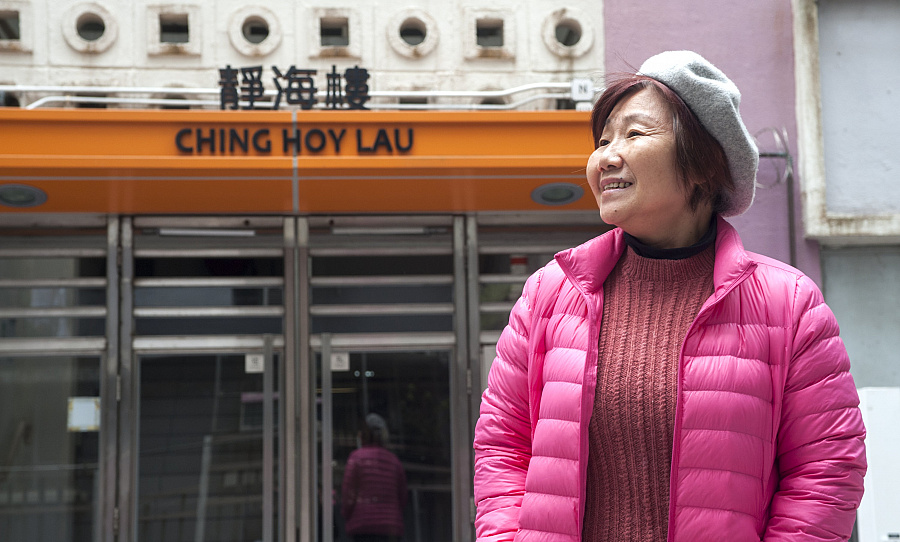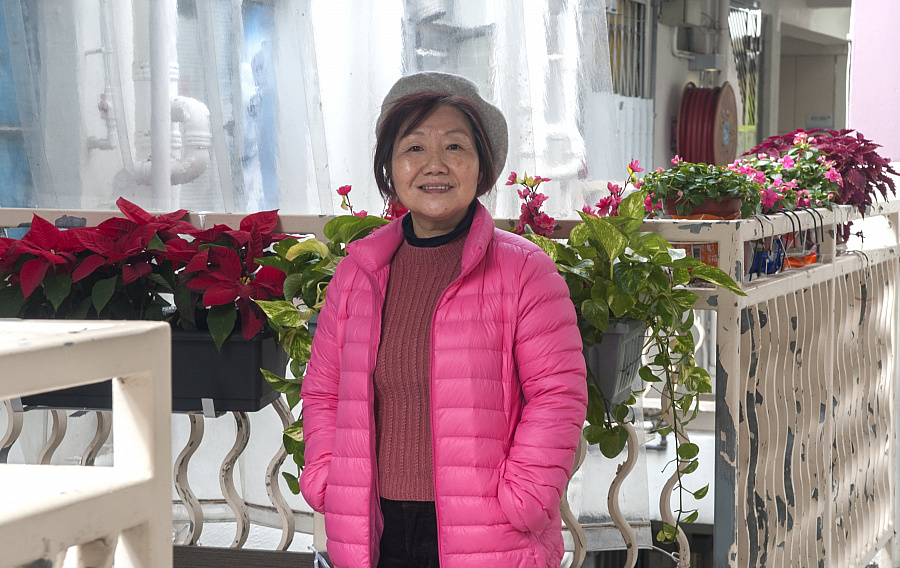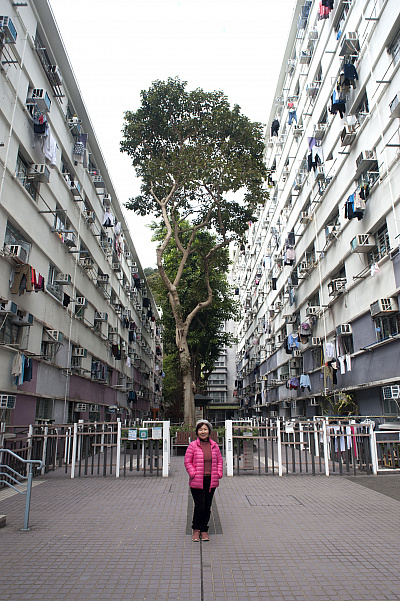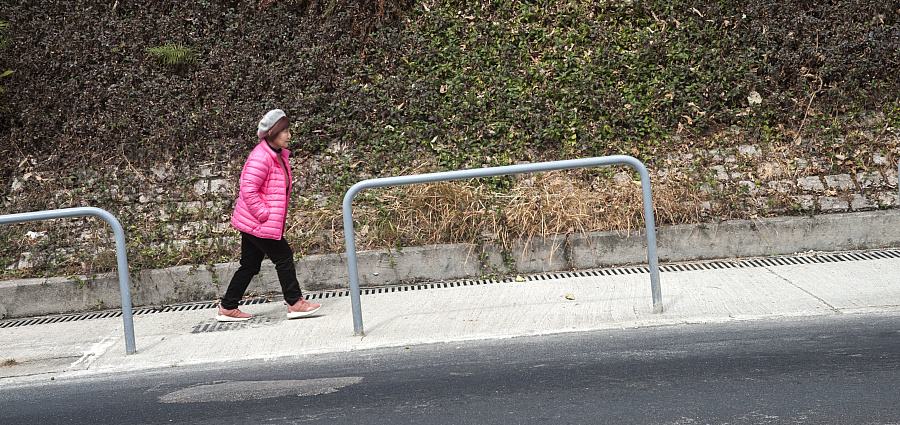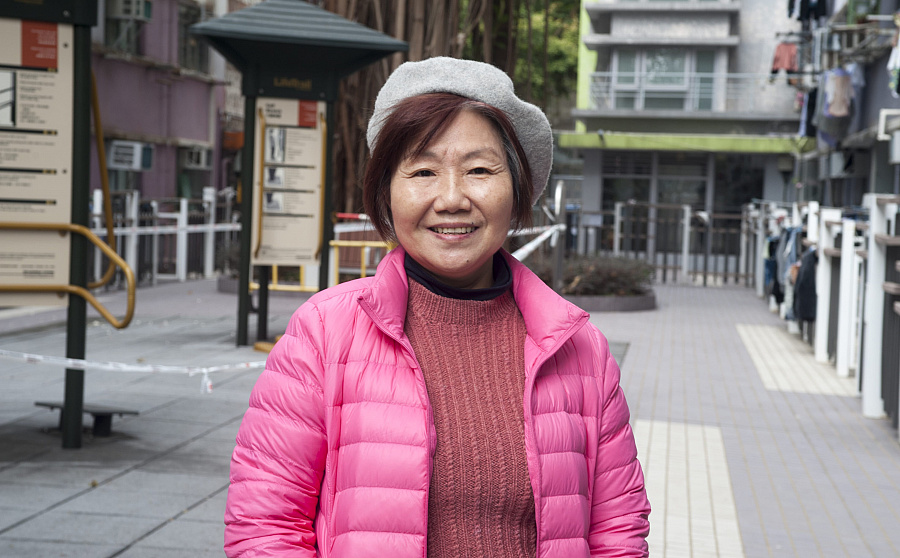CHEUNG Suk Kuen, aged 67, has lived in Ching Hoy Lau for over three decades. Before retirement, she worked as a clerk for an NGO, and is currently secretary for the Ching Hoy Lau Mutual Aid Committee.
*****
“My life before moving into Yue Kwong Chuen was quite primitive,” said Cheung Suk Kuen with a laugh.
She is referring to the 1970s, when she became Mrs. Choi after getting married with her boyfriend of two years. She used to live with her family in the old Shek Pai Wan Estate, where her father planted vegetables and raised chickens on the hills of Wong Chuk Hang. Her father built a small wooden hut on the hillside as a place to rest. After she got married, the hut became Cheung’s residence. “The hut was literally built upon a cliff. There were no electricity nor water supply. It was dangerous as one had to climb on all fours to arrive at the hut. It was pitch black at night, even though I was not afraid of the dark.” Cheung and her husband built two additional rooms next to the hut, which served as their kitchen and toilet. “We used kerosene lamps and stove…We also got a stool from a factory nearby. There was no flushing but my father dug a ditch to store the faeces which also served as fertilizers.”
At first, only Cheung and her husband lived on the hillside. Later on, Cheung’s father invited another newly-wed couple to the hut, which was followed by Cheung’s brother and wife. The hillside became a small village for a dozen people. Despite the freedom, living on the hillside was quite inconvenient. On dry days they would face water shortage; whereas on rainy days the ceiling would leak.
Typhoons were the worst. Cheung could still recall how she was woken up by her husband in the middle of the night. “He told me that the ceiling was nearly blown away. It was time to run! Back then our kids were still very young, so we had to grab our water bottle, infant formula and diapers with us. We escaped to our neighbours and sat at the living room.” That night, Cheung was exasperated by her husband who wanted to go back to their house and secure their TV set. “The ceiling was gone by then! I forbid him from going for the TV, what would happen to us if he lost his life? I would rather pay for another TV set!” To their surprise, after the water in the TV set dried up, it was actually able to function again.
The primitive life went on for another eight years.
In the 1980s, the Cheung family was finally allocated a unit on the top floor of Ching Hoy Lau in Yue Kwong Chuen. There was also a terrace without a cover. “We used the terrace to make dried peel. We bought the fresh peel from the market, and dried it until it went from green to brown.” They had a great relation with their neighbours, and the corridors were always busy as kids would run around. The only downside was that it got hot during summer. “As we lived on the top floor, the ceiling absorbed a lot of heat in the morning. Since our neighbours also cooked and switched on the aircon, sometimes it was so hot that we felt as if steam were coming off our scull.”
After a few years in Yue Kwong Chuen, Cheung gave birth to their youngest daughter. The family wanted more space and submitted their application to the Housing Society. In the 1990s, the family of five moved into a larger unit on the 4th floor, which had no terrace. “We didn’t realize how inconvenient it was without a terrace. We had no place to dry our laundry and there was one year when we discovered mould on them.” As time went by, Cheung’s knee joints deteriorated. As it was located on the hill with slopes and stairs, Yue Kwong Chuen became rather inconvenient for her.
Notwithstanding the complaints, Cheung still speaks fondly of her memories of the old days. “It’s so special to me that I feel like it could be a good movie!” Cheung’s smile adds the most sincere touch to this unique flick of hers.
